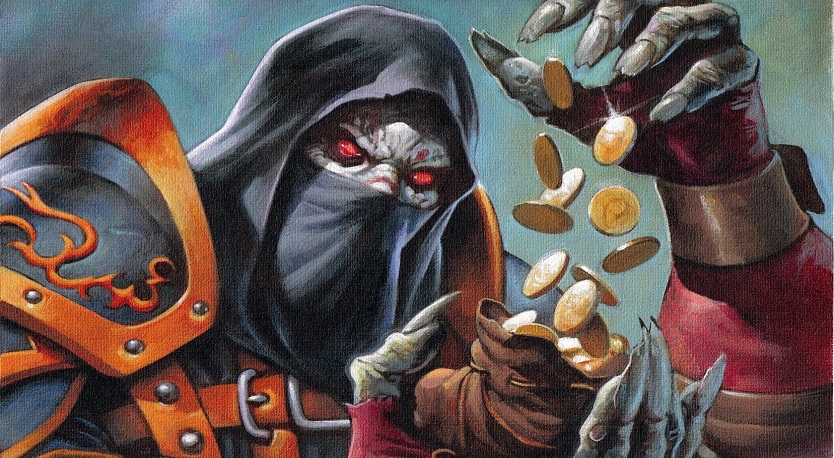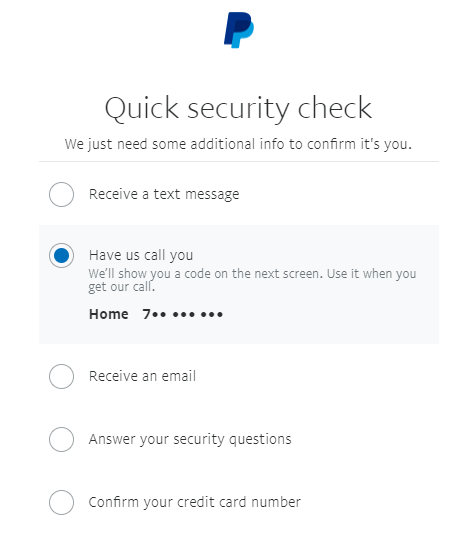Have you received a phone call from +1 402-935-7733, without expecting it? Well, then you’re probably in for a PayPal scam treat. While the number itself is actually an official PayPal phone number, there is absolutely no reason to get called from it out of the blue, unless someone is trying to hack into your account. Rest assured though, in this article I’ll explain exactly how it works, and how to avoid falling prey to such scammers.
What seems to be a classic jebait, is actually a pretty elaborate PayPal scam, and if you’re not paying attention or get really hyped at someone making an offer that’s too good to be true, you might be losing all the money you have in your PayPal account, and more so, even in the bank account that’s attached to your PayPal’s creditcard.
The PayPal Scam Jebait
So the PayPal scam attempt starts like this. Assuming you’re running an online business, or selling something, the scammer will make contact with you, pretend he’s interested in it and might even haggle over the price a bit to seem legit, or just flat out make a very generous offer in the hopes of distracting you from paying attention.
Say you agree on a price and what not, the scammer will then proceed to make something up that he can’t pay through the actual website where you’re selling your thing or even your own website if you’re running a Checkout form, and will ask for your PayPal mail to send it directly to you. He might also just flat out volunteer to give you something extra “for the hassle”, and will naturally accept to pay it as a PayPal gift, since he has literally nothing to lose (but you don’t know that yet).
Once he has your PayPal mail, he’ll make something up that he’s “transferring the money” into your account, but since the amount is too big, or since his PayPal is “the company’s account” or any other random yet apparently legit reason, you’ll receive a phone call from PayPal (number being +1 402-935-7733, Nebraska, US) to verify the transaction with a 4-digit code, which the scammer will provide to you. Seems legit, no? Well, no, and here’s why.
That 4-digit “transaction confirmation” code is actually the PayPal reset form code that you get when you forget your PayPal password and reset it via their website. One of the Forgotten Password options is “Have us call you”, which will show you (or anyone else with your PayPal mail) a 4-digit code on the screen, folloed by an automated phone call from +1 402-935-7733, to which a robot will prompt you for the 4-digit code, the same code that the scammer will provide you as the “confirmation code” to receiving the money.
This is of course not what PayPal had in mind when they implemented this, as naturally, if you are trying to reset your own password, you’d see the code on the screen, then your phone would ring, and you’d just input that code and that’s it, your password is reset.
However, if you go through with it in our account theft PayPal scam scenario, once you input the 4-digit code the scammer provided you, he’ll have the new password of your account, and will log into it and transfer all of your money to his account, or any other ghost account. That if he won’t go as far as even max out your bank creditcard that’s attached to your PayPal account, so this is extremely serious. While PayPal or your bank might eventually be able to help you recover your money, it definitely isn’t something worth your time, stress and effort.
How to Avoid Getting Scammed via PayPal Phone Verification
By now, you’ve most likely made an idea of how this works and how to avoid it, but I’ll mention it anyway, just in case.
REGARDLESS of what offer they make you, DO NOT accept the trade nor input the 4-digit code when you’re called from +1 402-935-7733 (or any other number that asks you for that code, in case PayPal changes it or has multiple services).
There is absolutely no chance that this is a legitimate transaction, and quite frankly, there is no transaction. This is all an attempt to steal your account’s password by verifying your identity through abusing PayPal’s forgotten password system.
What to do in the Event of Getting Your PayPal Account Stolen
I know this is the first thing everyone says, but don’t panic. You have every reason to, but try not to, as you need to move fast, especially in case the scammer didn’t have yet time to steal your money.
The very first thing that you need to do is go to the PayPal Forgotten Password website (a bit ironic), input your PayPal account mail, choose any viable option for you in that moment (such as “Have us call you”), then input the code that’s displayed on the PayPal page into your phone, once you get called. This is literally what the scammer did to in order to steal your account.
You can also choose “Receive a text message”, where you’ll receive a SMS code on your phone that you need to input on the PayPal field to reset your password. Once you do this, the scammer no longer has access to your account, and no further harm can be done, but do check your Balance and Activity, as well as your Bank statement and such, after changing your PayPal password.
In case the scammer was quick enough to steal some money, make sure to contact PayPal (or your bank) right away about reversing those transactions.
Conclusion
While there is no shortage of PayPal scams, or just scams in general, I must say, this is a pretty clever attempt. With a bit of extra talk and some behavior mirroring, the 4-digit “transaction verification” code might actually seem a pretty legitimate way of making sure you’re actually agreeing to receiving a large amount of money, when actually, you’re giving away your very own PayPal account to a thief.
This is pretty much it, and I truly hope this will prevent you from getting scammed, as I’ve seen a lot of questions about the above mentioned phone call and the 4-digit number on various forums, even the PayPal one, but nobody really answered any of them correctly. Make sure to tell your friends and family about this PayPal scam attempt, as you never know when one of them will get an offer that’s too good to be true.
Also, last but not least, if any of you guys have had any similar PayPal scam attempts (or any other payment processor) happen to you, please feel free to post them in the comments, and maybe it’ll even help someone out one day!



Comments 2
That was very informative and I would probably have fallen for this scam as my husband had a text saying pay pal account has been hacked and I phoned the the number from a different phone and said I am contacting police
Author
Wow, that’s messed up. So glad you read our article though. 🙂 Stay safe!